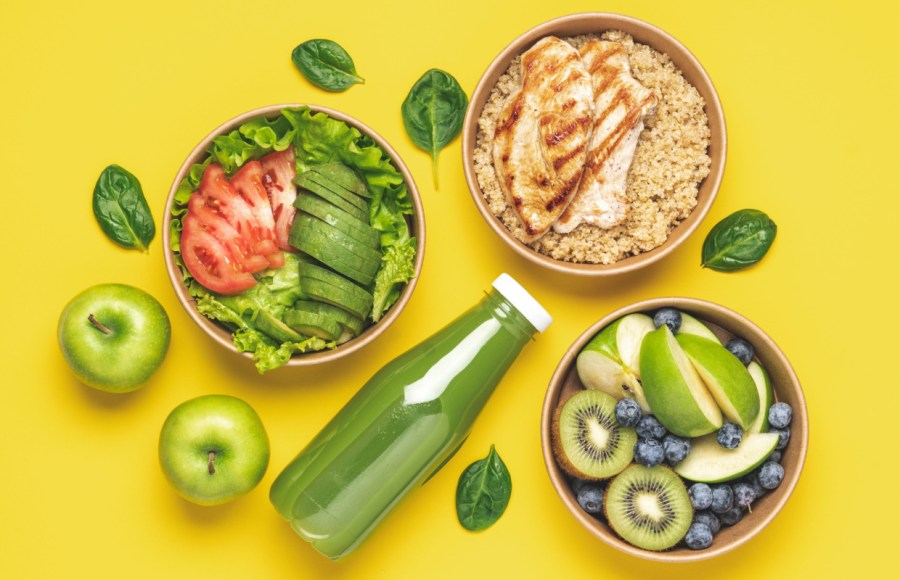Learning how to create varied diet is the key to health and wellness. Let’s take a closer look at the best grains, spices, herbs, oils and protein sources to mix up your diet and keep your body functioning at its best.
Variety is the key to healthy eating and weight loss. Keeping your foods varied will make sure you don’t get bored of eating the same things – so why not try some new foods each week? It’s also important to maintain a healthy balance by including foods from each of the different food groups: protein, fats and carbohydrates.
Related: 30 easy healthy eating habits to improve your diet
Adding in healthy grains, good fats and some key herbs and spices to create a varied diet will all help you lose weight as they will control your appetite, balance your blood sugars and can help to speed up your metabolism, which allows you to burn calories more efficiently.
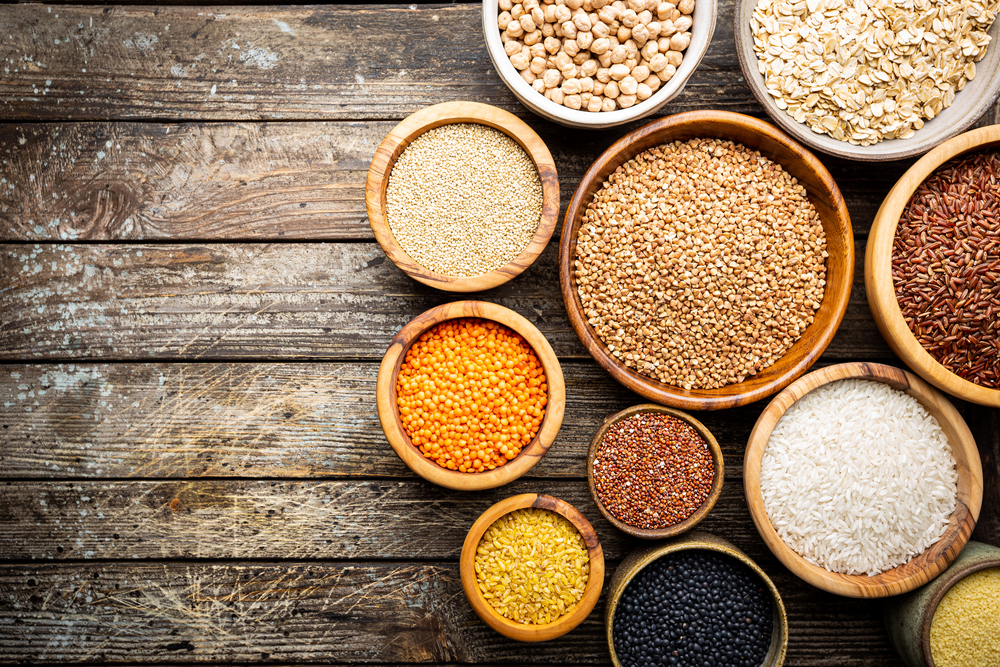
Which grains should I include in a varied diet?
OATS: are a great, low-GI source of energy. They also contain fibre and key vitamins and minerals that help maintain blood sugar levels and can lower cholesterol.
QUINOA: not only has the highest protein content of all grains, it has more calcium than milk, as well as key minerals, iron and B vitamins, all helping you feel fuller for longer.
RYE: is high in antioxidants, which can help to protect the body from cancer and heart disease, and is also good for balancing blood sugars and maintaining satiety.
WHOLEWHEAT: is always best, as it contains key minerals such as magnesium, has a low GI, and a high fibre content – which together are beneficial for weight loss.
BROWN RICE: is concentrated in B vitamins and minerals and contains bran and fibre, which is good news for your digestive system.
SPELT: is great for those who may struggle to digest wholewheat and is high in protein and fibre.
BUCKWHEAT: is also good if you are sensitive to gluten. It contains fibre and protein, as well as magnesium, which helps the muscles to relax, making it a great post-exercise food.
Related: Benefits of different food groups: fats, carbs, protein & fibre
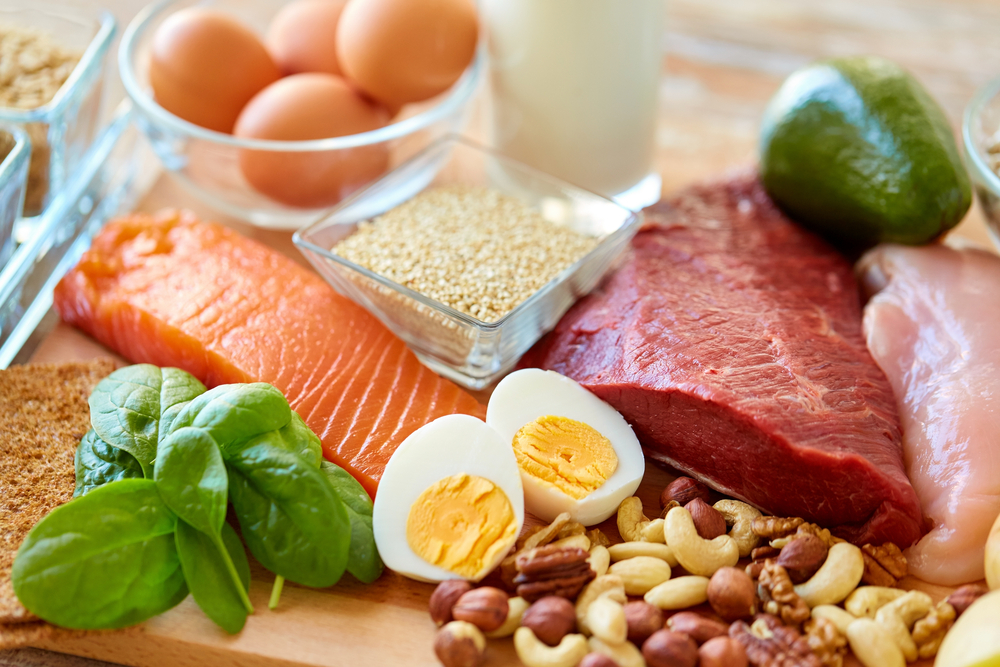
Best sources of protein
EGGS: are one of the most complete foods that you can eat. They are packed full of key nutrients including choline, which helps to metabolise fats and is converted by the body to acetylcholine – a molecule that can help to boost your memory.
LEAN WHITE MEATS: namely turkey and chicken, contain an abundance of minerals and vitamins including B vitamins. They are great post-exercise to help with muscle repair.
TOFU: is made from soya beans and is high in protein, low in saturated fats and a good source of calcium and vitamin E. A great protein source especially if you are vegetarian.
LEAN RED MEATS: such as beef and lamb, are a great source of iron and B vitamins, both of which are needed for energy.
LEGUMES (BEANS, PEAS AND LENTILS): are high in fibre and excellent for vegetarians. They’re packed with vitamins and minerals and help to control blood sugar levels.
DAIRY: is high in calcium, which is important for your heart and bones, and is involved in the body’s metabolism.
FISH: is an excellent source of protein as well as essential fats and sulphur, which is required for healthy detoxification.
Related: Vegan diet staples: best protein, iron & calcium sources
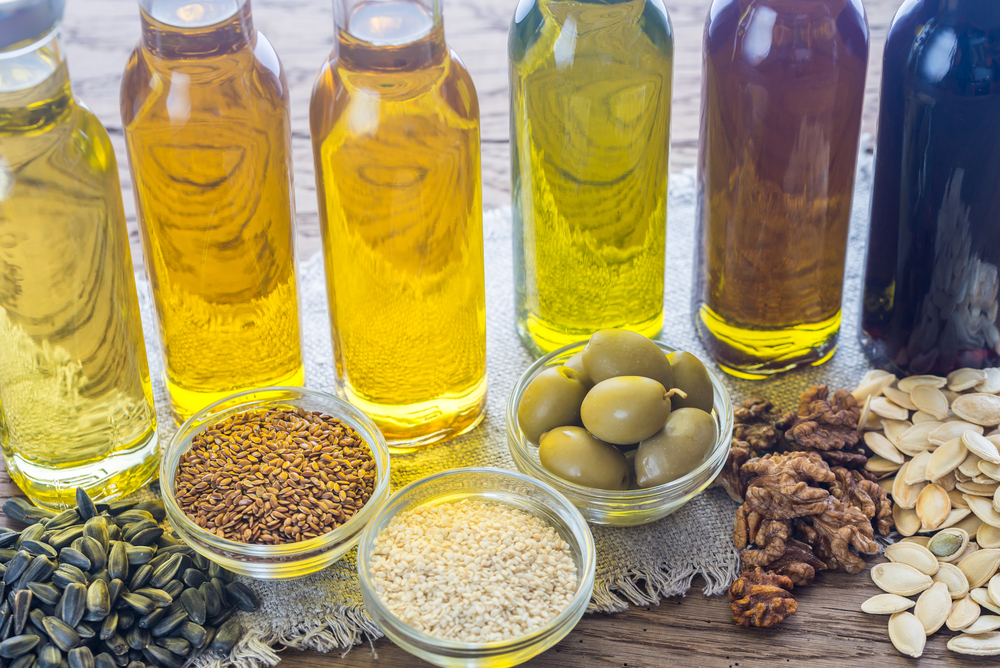
Which oils should I be cooking with?
OLIVE OIL: is a monounsaturated (good) fat that’s less susceptible to damage when heated and can help reduce cholesterol.
Other oils that can be used include rapeseed, sunflower and safflower, but they should only be used cold in dressings as heating them can change their chemical structure and make them potentially harmful to the body. Make your own salad dressings using olive oil with herbs and spices such as garlic, chilli or rosemary – delicious and with super health benefits.
Benefits of different spices
GINGER: is great for cleansing the body and calming the stomach. It also warms the body and boosts circulation.
GARLIC: is a fantastic all-rounder. Great for the heart, it also helps to detoxify the liver and lymph system and builds the immune system, so it’s a good food to eat for weight loss.
BLACK PEPPER: helps to protect against coughs and colds, and helps the body to eliminate toxins.
CHILLIES: contain capsaicin, which can lower blood sugars, relax the body and increase metabolism.
MUSTARD: strengthens digestion and increases the body’s metabolism.
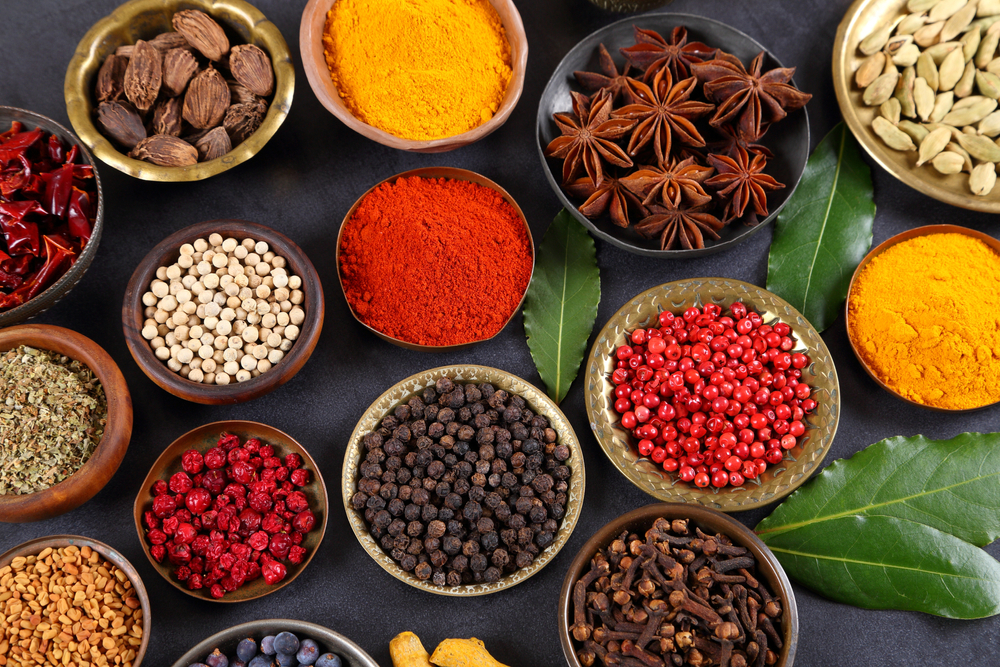
Best herbs to create a varied diet
THYME: is great for relaxing muscles, is a good cleanser and contains antiseptic properties, too.
BASIL: is antibacterial, mood-enhancing and good for cleansing, and is a source of vitamin C and beta-carotene (a form of vitamin A).
CHIVES: can reduce cholesterol and high blood pressure. They are antibacterial and antifungal, too.
CORIANDER: is a cleansing herb but is also effective against indigestion.
MINT: is good for all things digestion. Use within foods or add to water (hot or cold) for a refreshing post-meal drink.
PARSLEY: is a cleansing and mood-enhancing herb that can have a strong anti-inflammatory effect as well.
ROSEMARY: has many health benefits as it is energising, cleansing, stimulating and has antibacterial properties.
TARRAGON: can help you sleep and calm your nerves, as well as improve your appetite and digestion.
Related: Nutrition & fitness tips for the menstrual cycle phases

